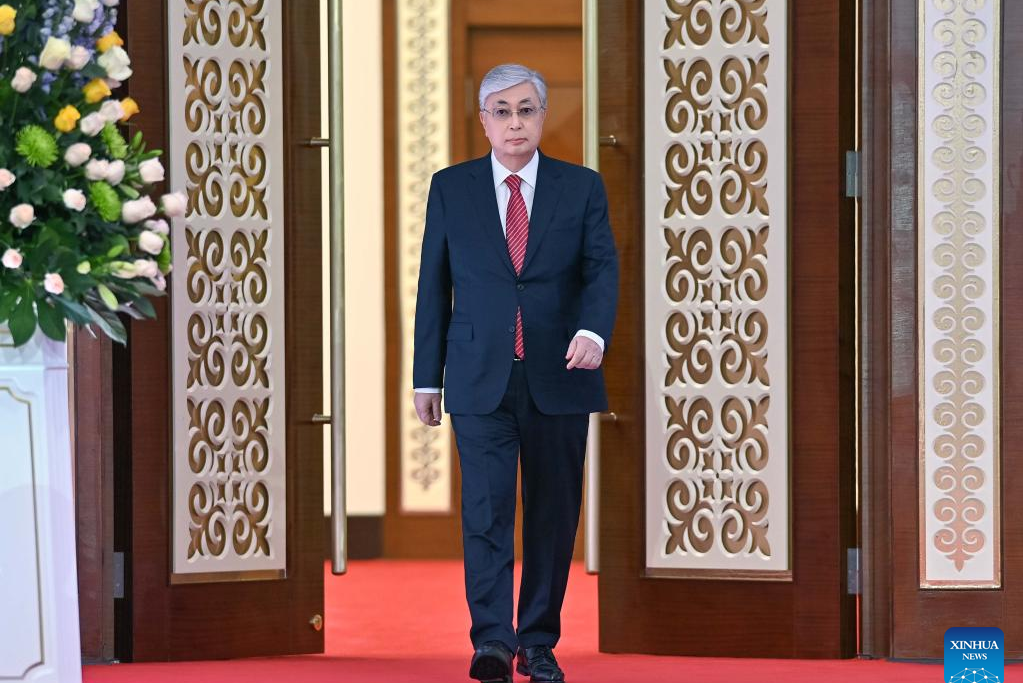This week, Chinese media covered the dissolution of Kazakhstan's lower house of parliament and the early election scheduled for March 19, the 26th meeting of the Economic Cooperation Organization (ECO) Council of Ministers (COM) in Tashkent, the increase in Uzbekistan's GDP in 2022, and the establishment of an Uzbek-Kyrgyz comprehensive strategic partnership.

Image source: Xinhua
Kazakh President Kassym-Jomart Tokayev dissolved the lower house of Parliament on January 19 and called an early election for March 19 (Tibet). “In accordance with the Constitution, after consultations with the chairmen of the chambers of Parliament and the Prime Minister, I signed decrees on the dissolution of the Majlis and the early termination of the powers of Maslikhats,” reads the President’s statement. Furthermore, he stated that 70% of Majlis deputies will be elected from party lists and 30% from single-mandate constituencies. Voting for Maslikhats of significant regions and cities will also take place using a mixed electoral system. He also stated that the new model for the formation of Majlis and Maslikhats will fully protect the interests of voters at both the national and regional levels, as well as provide a diverse range of viewpoints in representative bodies of power, creating favorable conditions for the further development of civil society.
The 26th meeting of the Economic Cooperation Organization (ECO) Council of Ministers (COM) was held on January 24 in Tashkent, Uzbekistan. (Sina) ECO members agreed to expand regional cooperation for energy security and sustainable energy, per the Secretary General Khusrav Noziri. According to him, the ministers adopted the Tashkent Communique to boost trade, promote disaster risk reduction cooperation, and strengthen transportation connectivity. Founded as the Regional Cooperation for Development (RCD) in 1964 by Iran, Pakistan and Türkiye, the Forum was renamed the Economic Cooperation Organization (ECO) in 1985. The organization groups Afghanistan, Azerbaijan, Kazakhstan, Kyrgyzstan, Iran, Pakistan, Tajikistan, Türkiye, Turkmenistan and Uzbekistan. The founding and fundamental goal of the Organization is to create amenable and conducive conditions for the continued promotion of sustainable economic development in the region, aiming at joint welfare and well-being of the Member States. (ECO)
According to the most recent data released by the state statistics committee, Uzbekistan's GDP (gross domestic product) increased 5.7 percent in 2022 compared to 2021. (Eastmoney) Meanwhile, bank analysts predict that Uzbekistan's GDP will grow by 4.5% to 5% in 2023, with inflation ranging between 8.5% and 9.5%. President Shavkat Mirziyoyev stated in his annual address to the parliament and the nation on December 20 that Uzbekistan's GDP will exceed 80 billion US dollars in 2022, setting a new record high.
During his two-day official visit to Kyrgyzstan, Uzbek President Shavkat Mirziyoyev met with his Kyrgyz counterpart Sadyr Japarov on January 27, and the two heads of state jointly signed a declaration on the establishment of a Comprehensive Strategic Partnership. (ChinaNews) The two sides discussed bilateral ties and signed various agreements, including those on border delimitation, during the talks. The President of Uzbekistan emphasized that more than 300 cooperative ventures will be established by 2022, with bilateral trade exceeding $1.3 billion.

